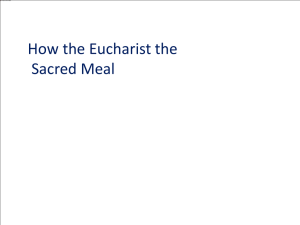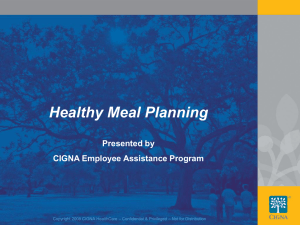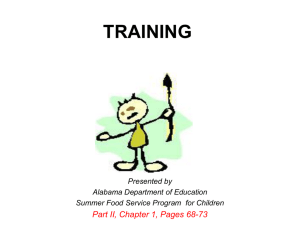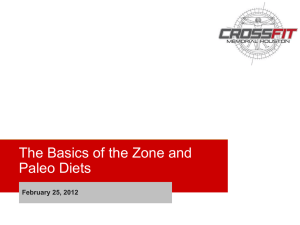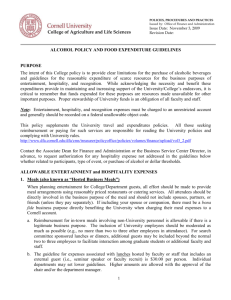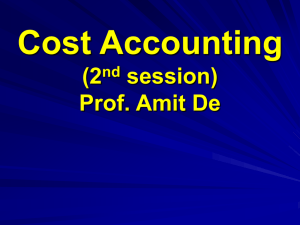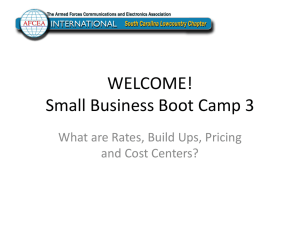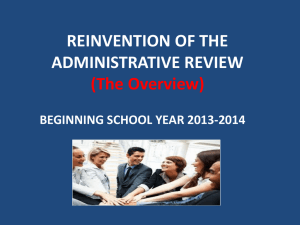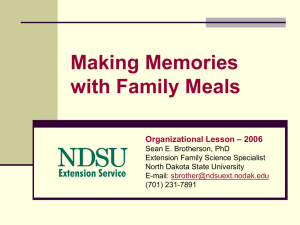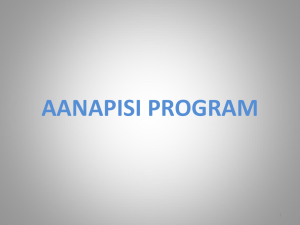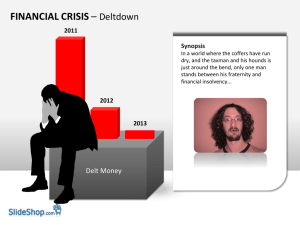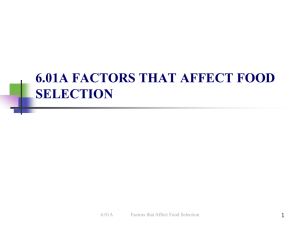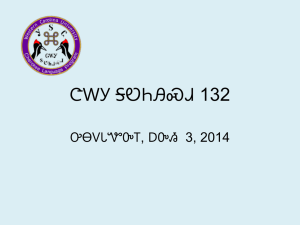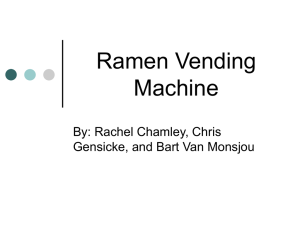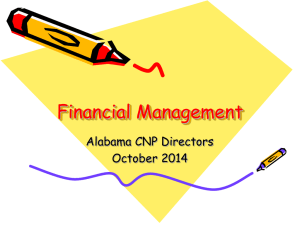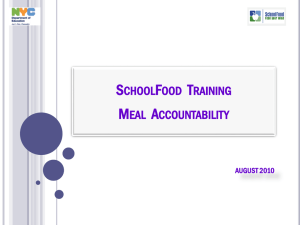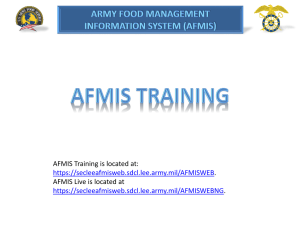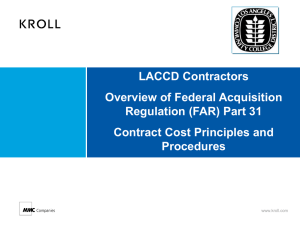Show Me the Money: An Overview of FNS Instruction & Best
advertisement
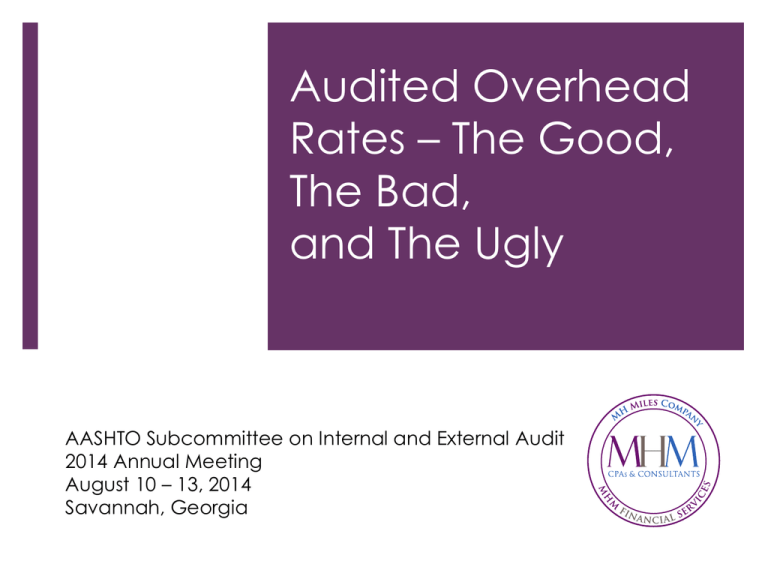
Audited Overhead Rates – The Good, The Bad, and The Ugly AASHTO Subcommittee on Internal and External Audit 2014 Annual Meeting August 10 – 13, 2014 Savannah, Georgia MH Miles Company CPA PC Niche Certified Public Accounting Firm Specialize In Governmental Compliance NUTRITION, TRANSPORTATION, EDUCATION TRANSPORTATION State Agencies FAR Overhead Rate Audits CPA Workpaper Reviews Final Costs Audits / Agreed-upon Procedures Reviews Staff Augmentation Training & Consulting Services A/E Firms FAR Overhead Rate Audits Assist management in calculating rate Accounting system set-up and improvements Guidance regarding State examinations & disputes AGENDA Common issues and findings noted Facilitate open discussion MEALS Employee Team Building Cost incurred to improve employee working conditions, employee relations, and morale are allowable (reasonable) FAR 31.205-13 Often covered by the entertainment cost principle FAR 31.205-14 which overrides all other principles Examples Donuts & coffee on Fridays for weekly department meeting Meal cost incurred at a Quarterly Progress meeting MEALS Overhead Meals Overhead meals are allowable when the purpose is not in support of projects and relates to the overall normal operations of business Examples A job interview for a project candidate at a restaurant. A lunch meeting held with a company lawyer to discuss trademark filings Corporate strategy meeting with managers over dinner. Catered meal for an open house held to celebrate grand opening of subdivision. MEALS Business Meetings If a meal is part of a business meeting and incidental to the meeting then it may be allowable. Technical meeting with speaker – allowable Simply discuss some business during meal unallowable For the meal to be allowable it must be part of the whole meeting, an incidental part (meeting can stand on its own) and the meeting itself is allowable. Meal cost must be reasonable MEALS The Key is Proper Documentation Who – employee name and names of all guest What – was purchased and price (including itemized meal receipts) When – date meal occurred Where – place meal occurred Why – purpose of the meal/meeting MEALS Common Mistakes Credit Card statement only Purpose of meal missing Meal cost excessive Alcohol not removed Misinterpretation of < $75 receipt rule Poll – State procedure for unallowable costs TOTAL TIME ACCOUNTING Requires all hours are recorded No specific regulation that requires TTA FAR 31.201-4: Cost Allocability and Assignability to Final Cost Objectives CAS 401: Consistency in Estimating, Accumulating, and Reporting Costs CAS 418: Proper Allocation Bases for Direct and Indirect Costs TOTAL TIME ACCOUNTING FAR 31.201-4: Cost Allocability and Assignability to Final Cost Objectives A cost is allocable if it is assignable or chargeable to one or more cost objectives on the basis of relative benefits received or other equitable relationships. CAS 418.40: Proper Allocation Bases for Direct and Indirect Costs Pooled costs shall be allocated to cost objectives in reasonable proportion to the beneficial or causal relationship of the pooled costs to cost objectives. Implied that all hours worked are needed to correctly determine the beneficial/causal relationship between the cost and the cost objective. TOTAL TIME ACCOUNTING CAS 401: Consistency in Estimating, Accumulating, and Reporting Costs (Bid = Book = Bill) FAR 31.201-1: Composition of Total Costs - The total cost is the sum of the direct and indirect costs allocable to the contract… FAR 31.203(d): Once an appropriate base for allocating indirect costs has been accepted, the contractor shall not fragment the base by removing individual elements. The premise is that consistent application of cost accounting practices will result in reliable cost estimates, and later facilitate comparing the estimated cost of contract execution with the actual cost. TOTAL TIME ACCOUNTING Common Mistakes Owners only recording 40 hours/week Employees stop recording time at 40 hours Time in excess of 40 hours only recorded if billable All hours recorded but only direct time is compensated Poll – State procedure for correcting CONTRACT/PURCHASED LABOR Accounting treatment varies depending on circumstances which costs are incurred Most likely causes no fringe benefits Labor performed in-house using the consultant’s supervision and facilities (Overhead Allocated) Labor performed offsite under the supervision and control of another entity (No Overhead) Does the accounting treatment match billings? CONTRACT/PURCHASED LABOR Common Mistakes Bill as employee direct labor – Accounted for as ODC or Indirect expense (And Vise-Versa) How do States correct? Redistribute in overhead to match billing practices Make adjustments on individual project basis OTHER ISSUES CPA firms performing substantial work to produce overhead audit without identifying Internal Control weaknesses Travel expenses not limited to FTR Indirect Labor on timesheets not detailed enough to identify unallowable activities. Rotary and Chamber of Commerce Dues Common Control Rent Parent Company Allocations
